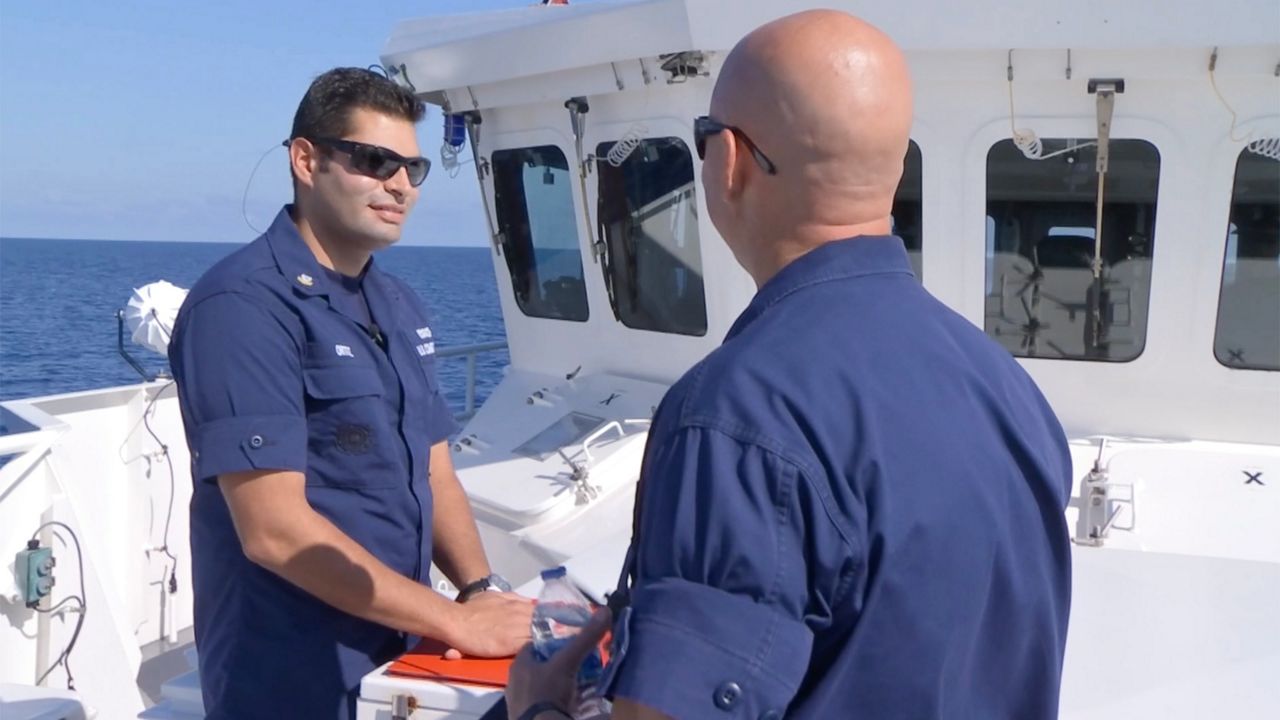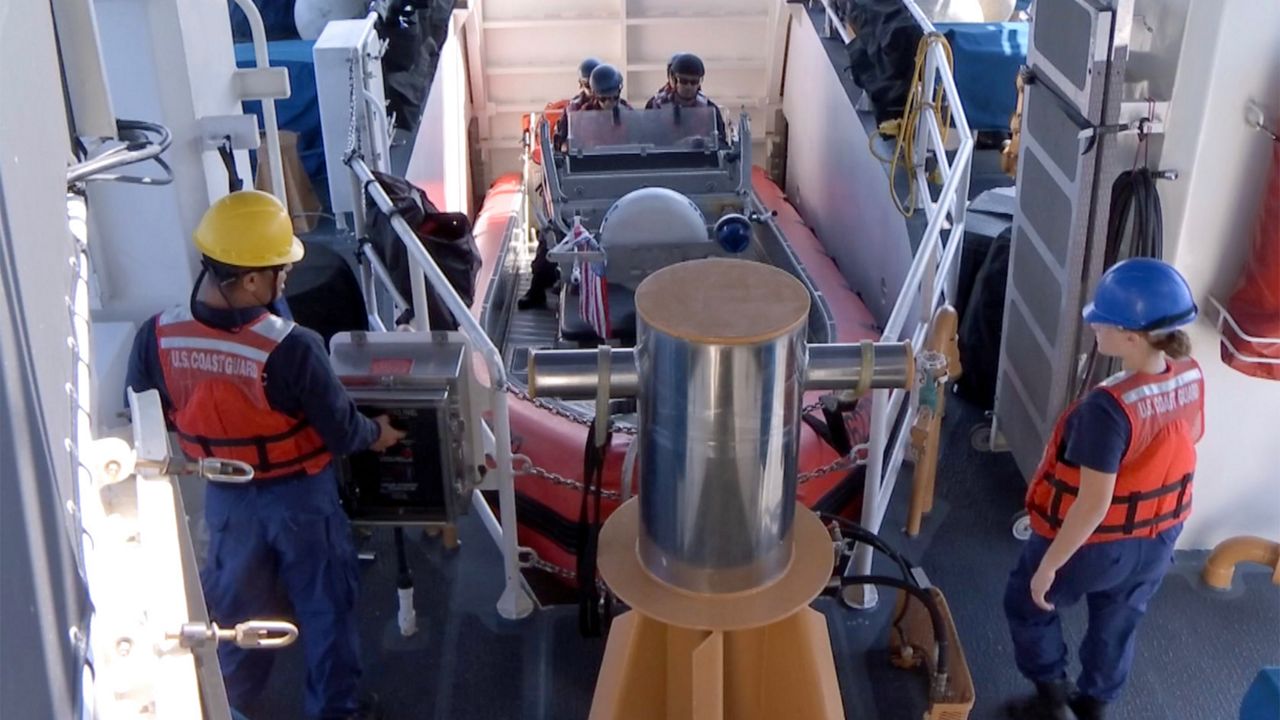MIAMI, Fla. — The U.S. Coast Guard’s 7th District seized 50 metric tons of cocaine on the water during the 2019 fiscal year — nearly triple the amount of contraband than the previous year.
- Coast Guard: waters off Florida coast preferred drug smuggling route
- Captain says smuggling at sea has a direct impact on border security
- RELATED: Go Inside the Coast Guard's Mission to Intercept Migrants at Sea
The agency in this region oversees activities in Florida, Puerto Rico, Georgia, South Carolina, and 34 foreign nations and territories. Nationwide, the U.S. Coast Guard has nabbed more than 180 metric tons of cocaine in the 2019 fiscal year, valued at $5 billion.
Miles from Florida’s shoreline, a crew of nearly 30 aboard the Coast Guard Cutter Paul Clark are standing by, ready to find and corner vessels carrying narcotics.
“It definitely feels like a never-ending battle. We are here doing the same job over and over again, and people are persistent,” said Petty Officer 2nd Class Luis Ortiz, a crew member on the Coast Guard Cutter Paul Clark.
Officials report the waters off the coast of Florida are the preferred route to smuggle drugs.
“There is a significant amount of cocaine that comes through the Caribbean,” said Lt. Cmdr. Kristopher Ensley, captain of the Paul Clark.
Ensley said most of the cocaine they confiscate is produced in South America, and then smuggled to different islands in the Caribbean and into the U.S.
Ensley says stopping the smuggling at sea has a direct impact on the nation’s border security.
“We have picked up operatives in different organizations. We have picked up people who are wanted by the law in multiple nations,” he explained during an interview aboard the vessel.
A Spectrum News crew headed out with the patrol from the base in Miami Beach. While there, the crew conducted a typical boat inspection on a vessel traveling to Florida from Bimini — the westernmost district of the Bahamas. The inspection ended without any issues.
“They are checking his safety gear and working with that master to ensure he’s operating safely right now,” Ensley explained, motioning to the vessel from the deck of the Cutter.
“This is the middle of the ocean. In a storm, this can be a very dangerous place. It’s important that these vessels are operating in accordance with the rules that the Coast Guard has promulgated. Those rules are written in blood,” he added.
The Coast Guard Cutter Paul Clark is one of 10 patrolling the Straits of Florida, an active section of the Caribbean. Many members of the patrol said drug smugglers are often trying to blend in with recreational boaters.
Members of this crew know firsthand that looks can be deceiving. They found 128 pounds of cocaine aboard what appeared to be a fishing boat earlier this year.
“Throughout the course of the boarding, we incidentally came across several packages of cocaine,” Ortiz recalled.
“That was one that was just had no reason to believe it was on board — it just was a surprise. Some of them are inconspicuous like that, some of them are a little bit more blatant, such as a large center console with three engines on board, running at 40 knots at night, and you can visibly see contraband on deck. So it can go either way,” he said.
“Bad guys are on all boats, from high-end boats to a lower quality vessels,” said Chief Petty Officer Jason Dame.
Finding covert vessels in the open ocean isn’t easy.
“We have diligent watch standers who are constantly looking out the window with binoculars, but that’s a large body of water,” Ortiz said.
Eyes in the sky
The agency isn’t only combating smuggling from the ocean — they also have eyes in the sky, with pilots identifying threats from the air.
“We can obviously cover a lot more area than the surface assets can,” said Lt. Julianna White, who typically flies a HC144 Casa, a medium range endurance aircraft.
White and a crew of law enforcement experts patrol the ocean in planes, equipped with the latest technology.
“We have two mission system operators that are controlling the radar,” White explained.
“Sometimes we can track up to a soda can in the water. It’s very capable,” she added.
Last week, another Coast Guard crew in the same district returned to South Florida, where they offloaded $400 million worth of drugs seized in international waters over the course of 18 separate operations.
“When we have a successful interdiction, they hold their heads high and come back proud as they can be,” Ensley said of his crew members.
Successful missions give this crew time to reflect on the greater mission, to keep illegal drugs off the streets.
“When you do come across and you do have the drugs on deck, and it’s a win for us. It’s a way to validate your efforts at the end,” Dame explained.






